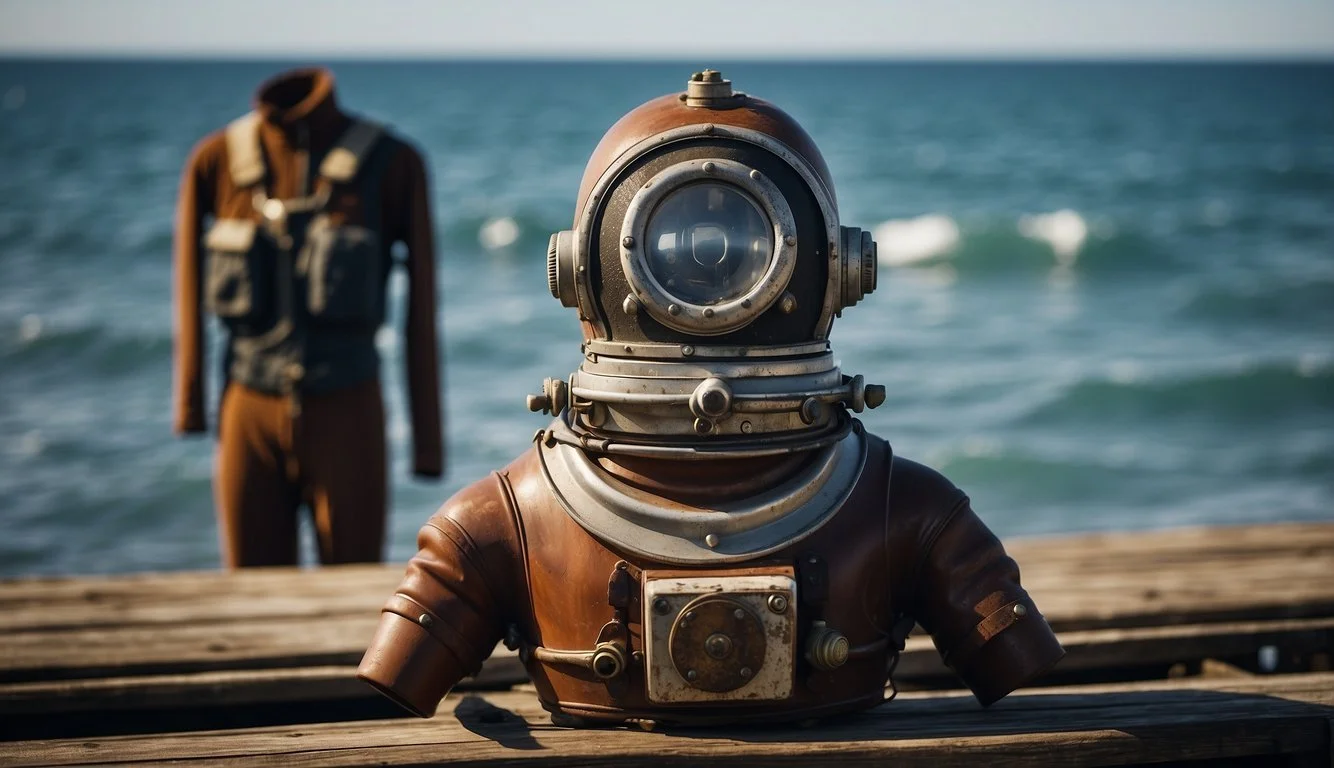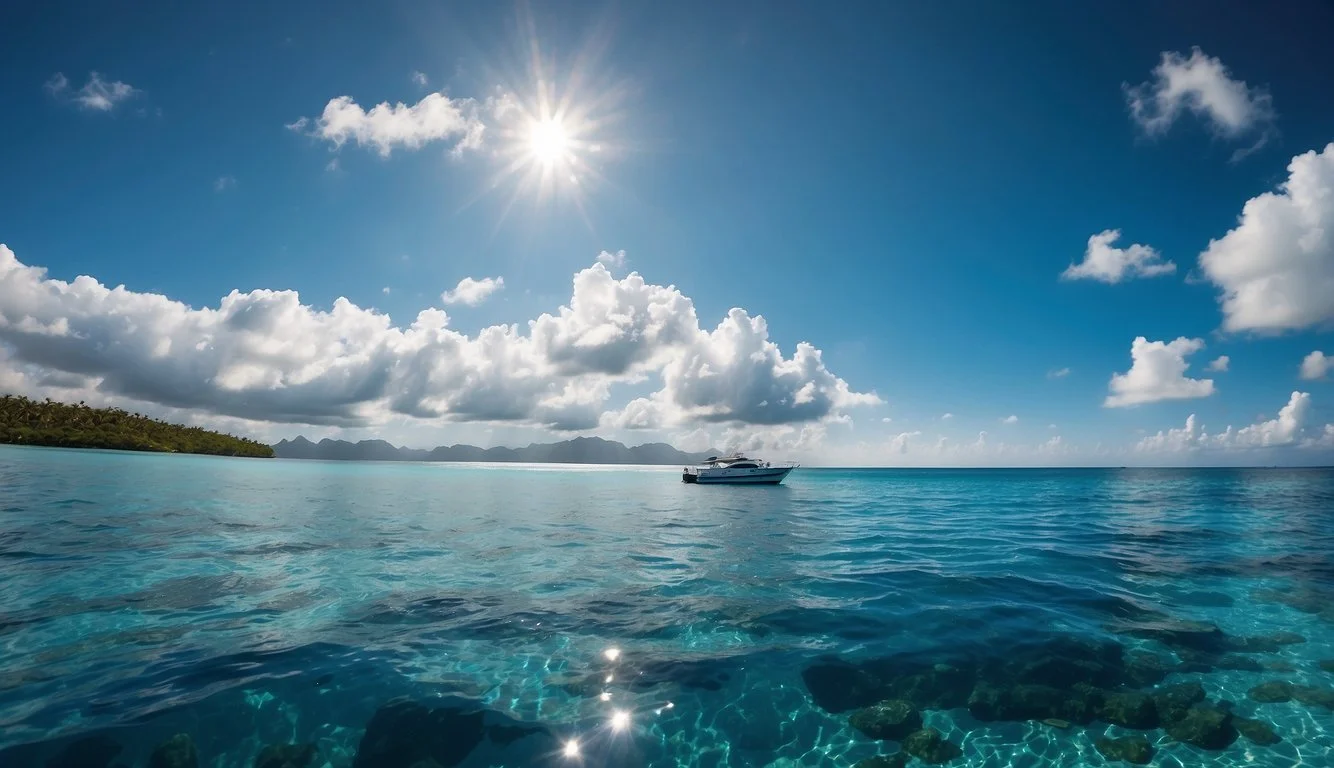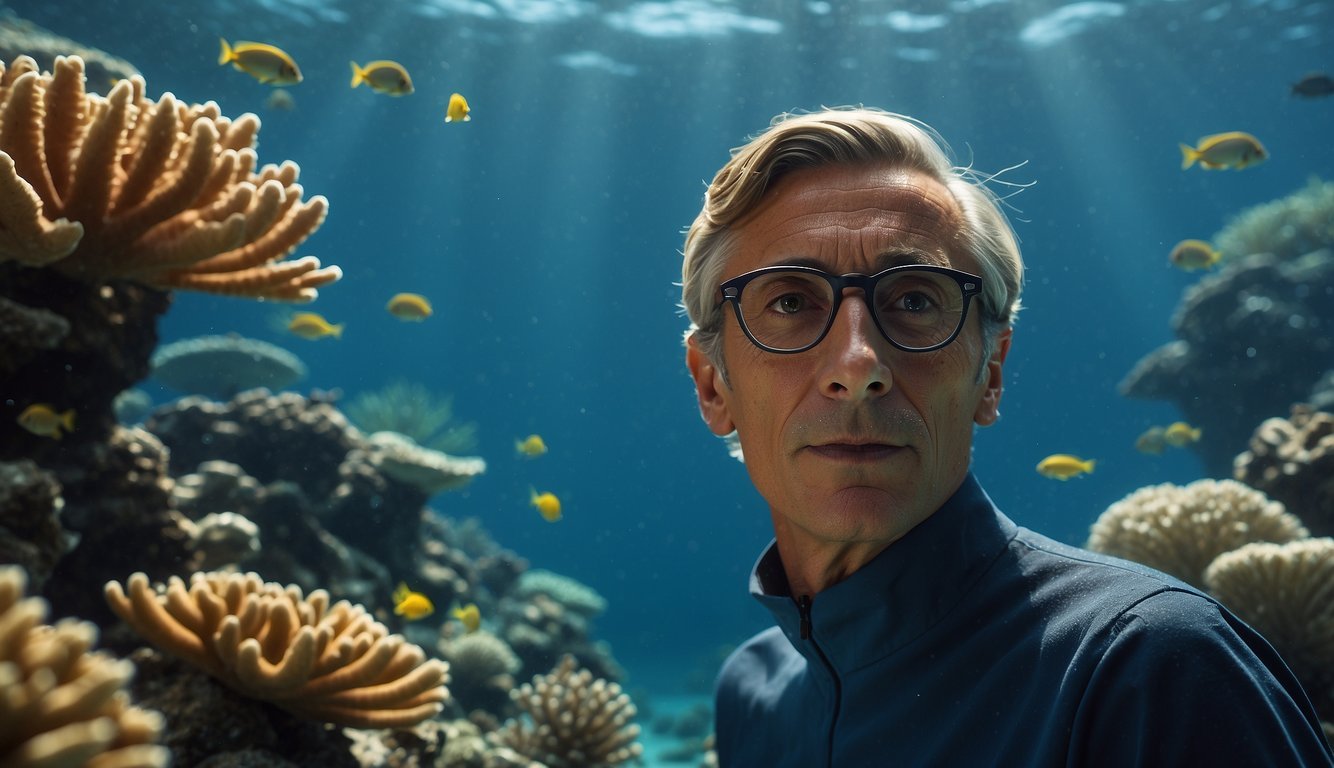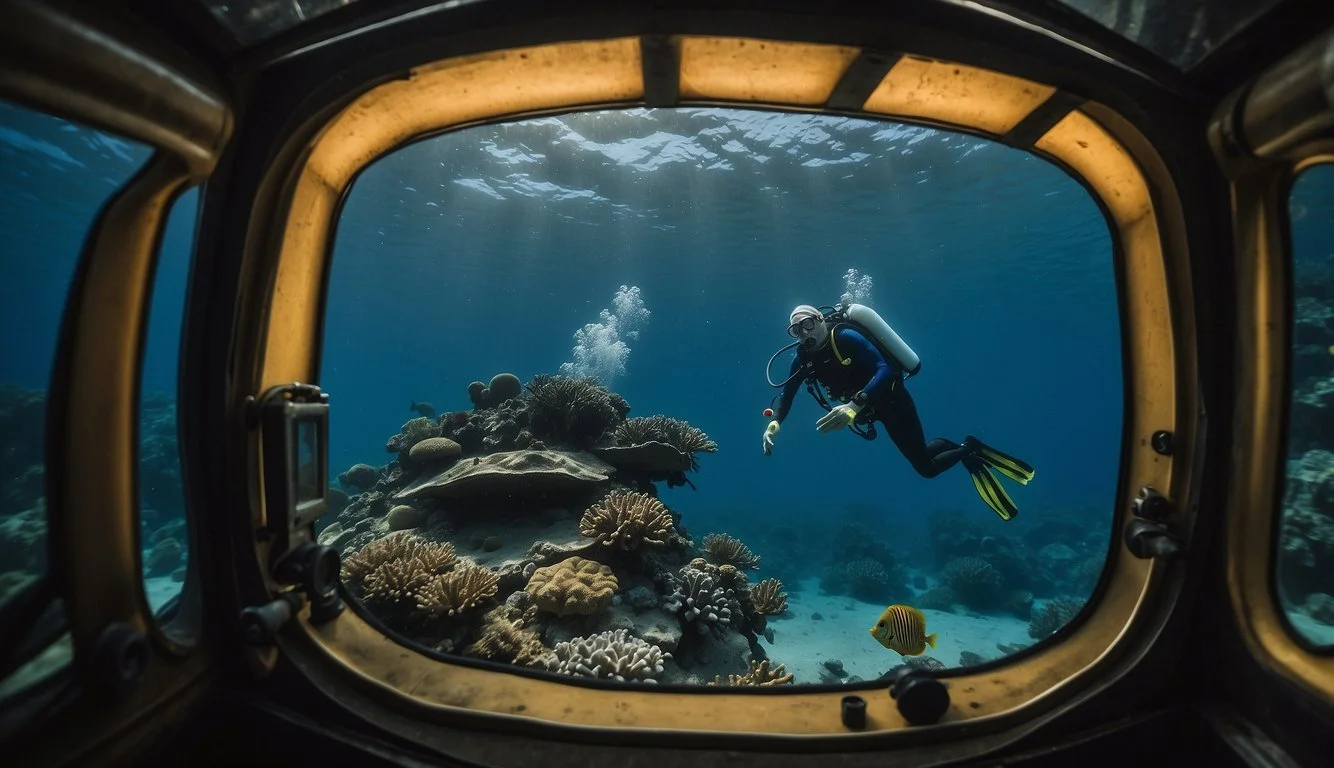Documentary Review: Becoming Cousteau (2021)
An In-Depth Look at Jacques Cousteau's Legacy
Becoming Cousteau (2021) is a captivating documentary that chronicles the life of Jacques Cousteau, the legendary ocean explorer and filmmaker. Directed by Liz Garbus, the film delves into Cousteau's pioneering work in underwater exploration and his profound impact on marine conservation. It offers a nuanced portrayal of Cousteau as both an adventurer and an environmental advocate, highlighting his contributions to our understanding of the underwater world.
Viewers are treated to an intimate look at Cousteau's life, from his early days as a navy officer to his groundbreaking work with the Aqua-Lung and his celebrated documentaries like "The Silent World." This engaging documentary focuses not only on Cousteau's remarkable achievements but also on the personal sacrifices he made in his relentless pursuit of oceanic exploration. His passion for the ocean and his eventual shift towards environmental activism provide a compelling narrative that is both inspiring and thought-provoking.
The film also sheds light on Cousteau's environmental efforts in the later years of his life. As the documentary transitions to his fight for ocean preservation, it showcases his transformation into a fervent advocate for our planet's marine ecosystems. This aspect of the film underscores the enduring legacy of Jacques Cousteau, making "Becoming Cousteau" a must-watch for anyone interested in the intersection of adventure, science, and environmentalism.
Director's Vision and Background
Liz Garbus brings a thoughtful and deeply researched perspective to "Becoming Cousteau." The historical context surrounding Jacques Cousteau's legacy enriches the film, providing viewers with a comprehensive understanding of his impact.
Overview of Liz Garbus
Liz Garbus is a well-regarded documentary filmmaker known for her ability to explore complex subjects with nuance and depth. She has been nominated for several prestigious awards, including the Academy Awards and Emmys.
Garbus has a unique talent for blending personal narratives with broader social and environmental themes. Her work often sheds light on influential figures and critical issues, making her an apt choice for a documentary focusing on Jacques Cousteau.
Historical Context of the Documentary
"Becoming Cousteau" situates Jacques Cousteau within the significant transformations of the 20th century. Cousteau's pioneering work in underwater exploration and environmental advocacy is explored against the backdrop of technological advancements and growing environmental awareness.
The documentary covers pivotal moments, such as the release of "The Silent World" in 1956. This film won the Palme d'Or at Cannes and an Academy Award, highlighting Cousteau's contributions to marine science and media.
Jacques Cousteau's Early Life and Inspiration
Jacques Cousteau's formative years laid the groundwork for his future achievements. Key moments from his youth and innovative efforts in underwater filmmaking significantly influenced his path as an ocean explorer.
The Beginnings of an Explorer
Jacques-Yves Cousteau was born on June 11, 1910, in Saint-André-de-Cubzac, France. As a child, he was fascinated by the sea and the mechanics of how things worked. His early interests included gadgetry and modifying mechanical objects, a curiosity that hinted at his future innovations. Cousteau's passion for the ocean truly ignited during his time in the French Navy, where he initially trained as a pilot but later shifted his focus to underwater exploration after a severe car accident curtailed his aviation career. His naval service provided him with the discipline and technical skills necessary for his later undertakings in undersea exploration.
Development of Underwater Filmmaking
Jacques Cousteau's contributions to underwater filmmaking began in earnest during the 1940s. Together with engineer Émile Gagnan, he co-invented the Aqua-Lung, a groundbreaking open-circuit scuba system that allowed divers to stay underwater for extended periods. This invention revolutionized underwater diving and exploration. Cousteau used the Aqua-Lung to film beneath the waves, capturing mesmerizing footage that was previously unattainable.
In 1956, he released "The Silent World," co-directed with Louis Malle. This film won the Palme d'Or at the Cannes Film Festival and brought underwater exploration to a global audience. His pioneering efforts in underwater filmmaking not only showcased the beauty of marine life but also underscored the importance of ocean conservation. Cousteau’s films educated the public and inspired countless individuals to explore and protect the world's oceans.
The Evolution of Cousteau's Career
Jacques-Yves Cousteau's illustrious career transformed from naval officer to pioneering oceanographer. His legacy is marked by groundbreaking underwater explorations, significant contributions to marine conservation, and impactful public engagement through various media.
The Calypso Expeditions
Cousteau's career took a decisive turn with the acquisition of the research vessel Calypso. Equipped with innovative technologies, the 1950s expeditions brought unprecedented underwater footage to the world.
With the Aqua-Lung invention, Cousteau's team could dive deeper and longer, uncovering marine life never before seen. These expeditions made oceanography accessible and fascinating, earning international recognition for the richness of underwater ecosystems.
Pioneering Marine Conservation
In the latter part of his life, Cousteau became a formidable advocate for marine preservation. Witnessing the degradation of coral reefs and marine habitats transformed his mission from exploration to conservation.
His efforts included campaigning against pollutants and overfishing, emphasizing the interconnectedness of ocean health and human survival. These initiatives were pivotal in raising global awareness about the need to protect marine environments for future generations.
Public Engagement and Education
Cousteau's ability to captivate and educate the public was unmatched. Through documentaries, books, and television series like "The Undersea World of Jacques Cousteau," he brought the wonders of the ocean into living rooms worldwide.
His work inspired a generation of marine scientists and enthusiasts, fostering a greater appreciation for the oceans. By combining visual storytelling with scientific insight, Cousteau made complex marine concepts accessible, engaging, and compelling.
Cinematic Technique and Storytelling
"Becoming Cousteau" is a compelling documentary that artfully combines a well-structured narrative, stunning visuals, and an evocative soundscape to immerse viewers into the life and legacy of Jacques Cousteau. The film's approach makes it accessible and engaging for both newcomers and longtime fans.
Narrative Structure
The documentary adopts a chronological narrative, starting from Cousteau's early years and moving through his pioneering expeditions and environmental activism. This structure provides a comprehensive view of his evolution as both an explorer and a conservationist. Historical events are interwoven with personal anecdotes and interviews, offering a balanced perspective on his achievements and challenges. The use of archival footage adds depth, enabling viewers to connect emotionally with Cousteau's journey.
Visual Style and Cinematography
Liz Garbus ensures that the visual style captivates the audience. The underwater shots are particularly mesmerizing, reflecting Cousteau's love for the ocean. Close-up shots, wide shots, and time-lapses are used effectively to capture the ocean's beauty. Garbus also employs color grading to distinguish different periods and moods within the film. Archival footage is restored to high quality, blending seamlessly with modern interviews and scenes, ensuring visual consistency throughout.
Sound Design and Score
The sound design plays a crucial role in enhancing the documentary's emotional impact. Ambient sounds of the ocean are interspersed with Cousteau's own voiceovers and contemporary interviews, creating an immersive experience. The score is both evocative and subtle, often using orchestral pieces to underscore key moments. This dynamic soundscape not only supports the visuals but also emphasizes the documentary's themes of wonder and urgency regarding marine conservation.
Themes and Messages
"Becoming Cousteau" explores Jacques Cousteau's life and achievements, emphasizing his environmental advocacy, deep connection with the ocean, and the personal sacrifices he made.
Environmentalism and Legacy
Jacques Cousteau was an early advocate for marine conservation. The documentary highlights his groundbreaking efforts to raise awareness about ocean pollution and the destructive impact of human activities on marine ecosystems. His pioneering work led to the development of numerous conservation programs and inspired generations of environmentalists. Cousteau's invention of the Aqua-Lung and his captivating films brought the beauty and fragility of the underwater world to a global audience, cementing his legacy as a visionary who tirelessly worked to protect the oceans.
Human Connection with the Ocean
Cousteau's deep bond with the ocean is a central theme in the documentary. The film portrays how his underwater explorations were not merely scientific endeavors but also deeply personal journeys. Cousteau believed that experiencing the underwater world was a way to understand and appreciate its importance. His ability to convey this magical connection through his films and books helped many people develop a deeper love for the ocean, fostering a sense of responsibility toward its preservation.
Personal Sacrifice and Triumph
The documentary delves into the personal struggles Cousteau faced in pursuit of his dreams. He made significant sacrifices, spending long periods away from his family and enduring physical hardship during his expeditions. Despite these challenges, Cousteau's determination never wavered, leading to numerous triumphs, such as winning prestigious awards for his films and making scientific breakthroughs. The documentary reveals the complex interplay between his personal sacrifices and professional achievements, highlighting his relentless pursuit of knowledge and conservation.
Critical Reception and Impact
"Becoming Cousteau" has been noted for its detailed portrayal of Jacques Cousteau's life and its significant influence on both documentary filmmaking and environmental awareness.
Influence on Documentary Filmmaking
Liz Garbus’ direction of "Becoming Cousteau" has been applauded by critics. With an approval rating of 98% on Rotten Tomatoes, the documentary's professional craftsmanship and emotional depth have been recognized. Garbus skillfully combines archival footage with contemporary interviews, setting a new standard for biographical documentaries.
The film's narrative approach—juxtaposing Cousteau’s profound love for the sea with the personal and professional challenges he faced—offers a compelling storytelling model. Critics praised this method for providing an intimate look into Cousteau while maintaining a critical perspective on his actions.
Effects on Environmental Awareness
"Becoming Cousteau" has also reignited public interest in marine conservation. The documentary sheds light on Cousteau’s transformation from a passionate explorer to an environmental advocate, highlighting his early warnings about ocean pollution.
Audience reactions reflect an increased awareness of the fragility of marine ecosystems. Additionally, the film emphasizes Cousteau’s foresight regarding climate change, calling attention to the ongoing relevance of his environmental messages. By revisiting Cousteau’s legacy, the documentary serves as a powerful reminder of the importance of proactive environmental stewardship.
Comparative Analysis
Becoming Cousteau stands out as a compelling documentary both in comparison to previous works about Jacques Cousteau and through its contemporary relevance, highlighting the ongoing societal impacts of his environmental advocacy.
Becoming Cousteau vs. Other Works
Becoming Cousteau distinguishes itself from prior documentaries on Cousteau by offering a more intimate look at his personal transformation from a passionate adventurer to an ardent environmentalist.
Liz Garbus's direction reveals Cousteau as not just an iconic filmmaker but an early advocate for climate awareness. While The Undersea World of Jacques Cousteau series focused on ocean exploration, Becoming Cousteau places greater emphasis on his environmental legacy.
The documentary also contrasts with earlier works through its use of archival footage and personal diaries, providing a richer, multi-dimensional portrayal of Cousteau's life. This deeper dive into his thoughts and motivations offers viewers a unique insight, setting it apart from more conventional biographical films.
Modern Relevance and Societal Impact
The film’s exploration of Cousteau's environmental advocacy is particularly relevant today. As climate change continues to be a pressing global issue, Becoming Cousteau reminds audiences of the early warnings Cousteau issued decades ago.
His pioneering efforts in marine conservation resonate with modern movements aimed at protecting the oceans. Garbus's film underscores Cousteau’s foresight in recognizing the critical state of the planet and draws parallels to current ecological challenges.
Additionally, by focusing on Cousteau’s role in the climate change discourse, the documentary serves as both an educational tool and a call to action for contemporary environmentalists and policymakers, emphasizing the enduring impact of Cousteau's work.
Conclusion
In examining Jacques Cousteau's impact and the documentary's significance, key aspects emerge showcasing his contributions to ocean exploration and the film’s historical value.
Summation of Cousteau's Influence
Jacques Cousteau revolutionized our understanding of the underwater world. His innovative diving techniques and underwater documentaries made oceanographic research accessible and popular.
He invented the Aqua-Lung, enabling extended underwater exploration. Cousteau's pioneering work in marine conservation highlighted the need to protect ocean ecosystems long before it became a mainstream concern.
His films, such as The Silent World, won prestigious awards, showcasing his ability to blend scientific inquiry with captivating storytelling. Through his work, Cousteau inspired countless individuals and fostered a greater appreciation for marine life worldwide.
The Documentary's Place in Film History
Becoming Cousteau offers a comprehensive look at Cousteau’s life, chronicling his achievements and struggles. Directed by Liz Garbus, the 2021 documentary brings a fresh perspective to his legacy, combining archival footage with insightful interviews.
It highlights Cousteau's pivotal role in the development of underwater filmmaking. The film has been praised for its depth and accuracy, adding a significant chapter to the documentary genre.
By capturing Cousteau's enduring influence and presenting it in a compelling manner, Becoming Cousteau cements its place in the annals of film history, serving both as an educational tool and a tribute to a pioneering spirit.







